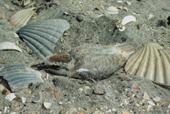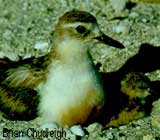The Far North Environment Centre is putting its support behind a recent campaign launched by Forest & Bird to restrict vehicles on our beaches. If you would like to take action, please read on.
Forest & Bird's campaign to ban vehicles from beaches first began as a drive to protect New Zealand's rarest bird - the fairy tern - whose nesting sites on Pakiri Beach north of Auckland were destroyed by off-road vehicles.Since then, concern about the harm being caused by vehicles on beaches has grown into a national campaign and a broader vision to protect natural dune formations, native vegetation and wildlife areas that are prime habitat for wading and coastal birds, such as New Zealand dotterels and bar-tailed godwits.
Vehicles on beaches can damage the natural formation of sand dunes, which are important because they help protect land, people and houses from tidal surges and cyclones.
The native grasses and tussocks that cover our sand dunes are particularly important because they help retain water and prevent dunes from drying out and becoming eroded. They also provide shelter for sand-dwelling birds, lizards and insects.
Damaging this habitat can have a disastrous long-term effect not only on our much-loved beaches and dunes.
If we protect them, they will protect us.
Vehicles are the biggest cause of damage to dunes, the coastal environment and the plants and animals that live there.
They destroy native habitats and vegetation and leave dunes exposed to damage from storms and erosion.
Vehicles also create noise pollution that drowns out the sounds we would normally enjoy, such as the crash of waves on the beach, or the calls of seabirds. They also pose a conflict with other beach users, such as children playing or people walking on beaches, and are a risk to people's safety.
We recognise that some beach users require vehicles in some circumstances, such as towing a boat to a launching site, but these uses can be catered to by restricting vehicles to approved access points for specific purposes only.
Without adequate controls many of our beaches resemble busy highways, with large numbers of vehicles being driven at high speeds and over vulnerable dunes and coastal habitats.
We aim to work with communities, coast care, recreation, fishing and other environmental groups, iwi, Far North District Council, and Northland Regional Council to help stop the damage that vehicles cause to our coastal environment.
We would like our beaches to be a safe place for our coastal wildlife to flourish and people to enjoy swimming, fishing and enjoying our beautiful coastal environment. Banning vehicles would help restore our beaches to the peaceful, natural places they once were, for the enjoyment of everyone.
Take Action!
Forest & Bird branches right around the country are involved in this campaign. If you would like to become involved in their Vehicles off Beaches campaign by monitoring sea-birds, erecting signs, or talking to your local MP or council about this issue contact your local Forest & Bird branch (click here), or contact us here at the Far North Environment Centre (click here).



Comments
There is no need to drive on the beach for leisure. The foreshore is the seedbed for many species and needs protecting from humans. We have enough places to speed around on , the beach is not another road.
Access to land or the need to get to your home is fair enough but it is not for a sunday drive area.
We in ahipara would probably hve difficulty enforcing it but at least minimising the damage is a start.